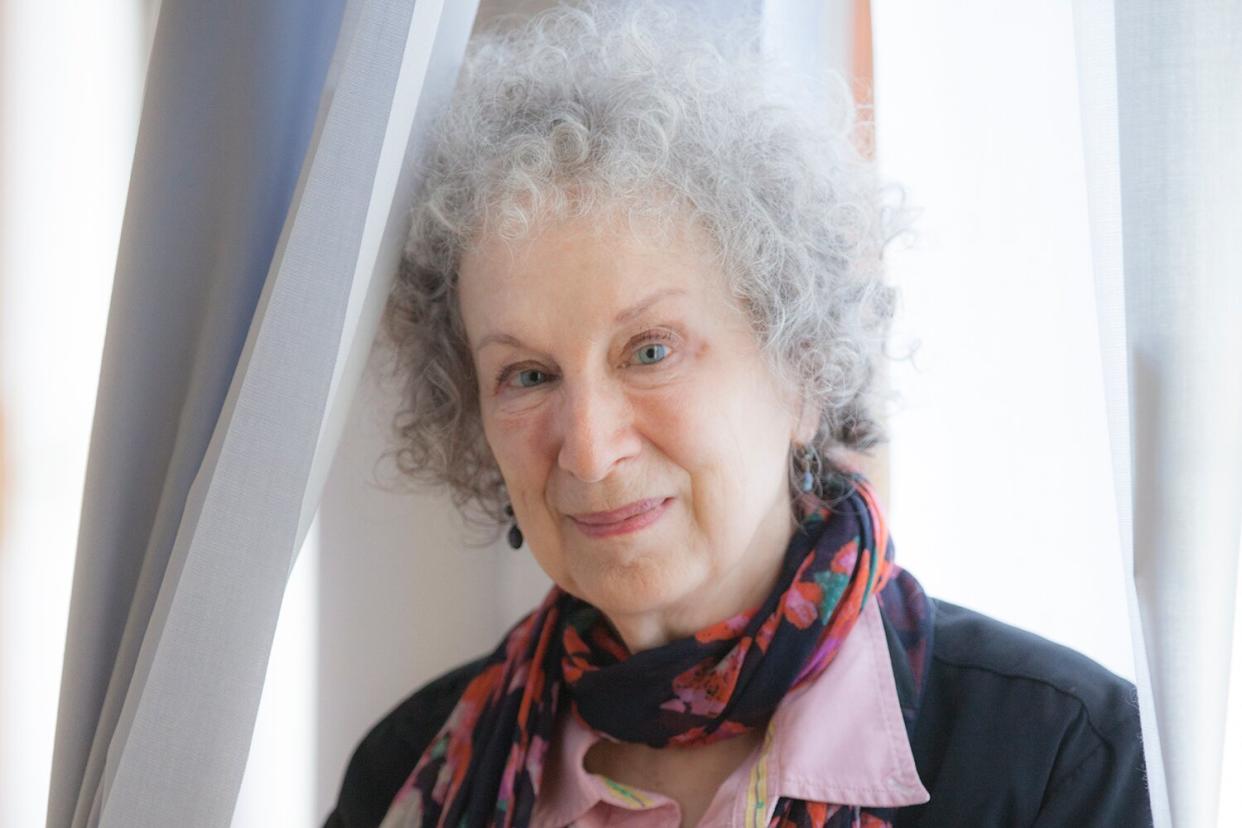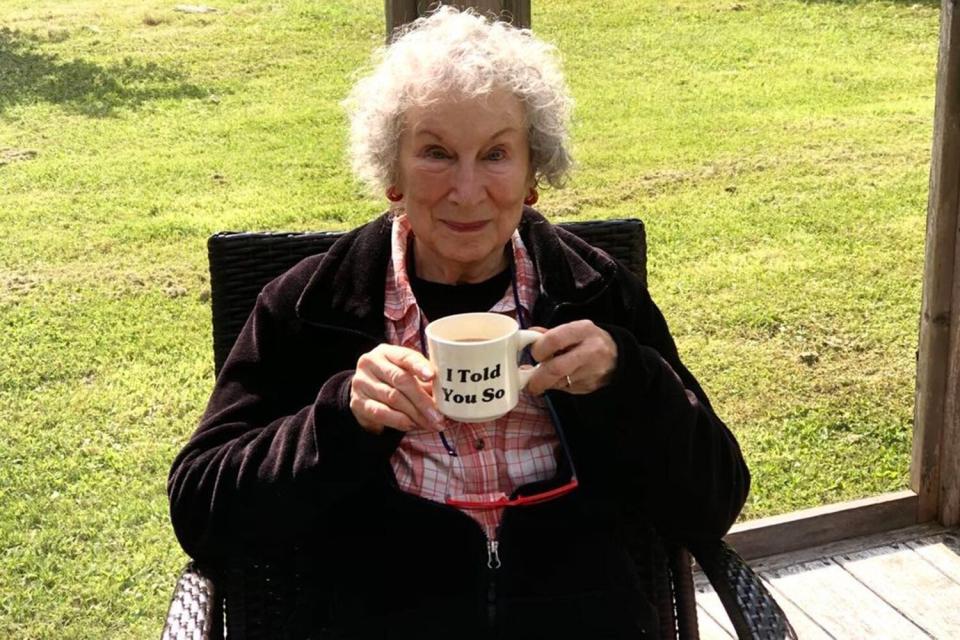The Handmaid's Tale Author Margaret Atwood Shares a Public Message After the Overturning of Roe v. Wade

- Oops!Something went wrong.Please try again later.
Leonardo Cendamo/Getty Margaret Atwood
Margaret Atwood has a message following the Supreme Court's decision to overturn Roe v. Wade last month.
In a post to Instagram over the weekend, the Handmaid's Tale author shared a photo of herself holding a coffee cup.
"Coffee in Nova Scotia with appropriately sloganed coffee cup…," she wrote.
"I Told You So," the cup reads.
Atwood's novel, The Handmaid's Tale, tells a dystopian story in which women no longer have free will or control over their own bodies.
RELATED: Pregnant Woman Contests HOV Ticket by Saying Fetus Is Passenger After Roe v. Wade Decision
The novel is set in what was once the United States — but is now a totalitarian theocracy. In this futuristic state, Handmaids are forced to bear children for barren, upper-class couples.
The book, first published in 1985, has long been the target of critics who have fought to ban it in communities and schools all over the globe.

Margaret Atwood/Instagrm Margaret Atwood Instagram
In 2017, the eponymous TV series starring Elisabeth Moss premiered on Hulu, becoming an instant hit.
That year, Atwood told PEOPLE that she never intended for the the book to be prophetic.
"There's a precedent in real life for everything in the book," she told PEOPLE. "I decided not to put anything in that somebody somewhere hadn't already done. But you write these books so they won't come true."
RELATED: Celebrities React to the Reversal of Roe v. Wade: 'Absolutely Terrified'
On June 24 it was announced that Roe v. Wade, the landmark Supreme Court decision of 1973 that granted women the right to an abortion in every state, had been overturned by the U.S. Supreme Court.
The 6-to-3 ruling reverses nearly 50 years of precedent and will completely change the landscape of women's reproductive rights by giving individual states the power to decide whether to allow the procedure.

